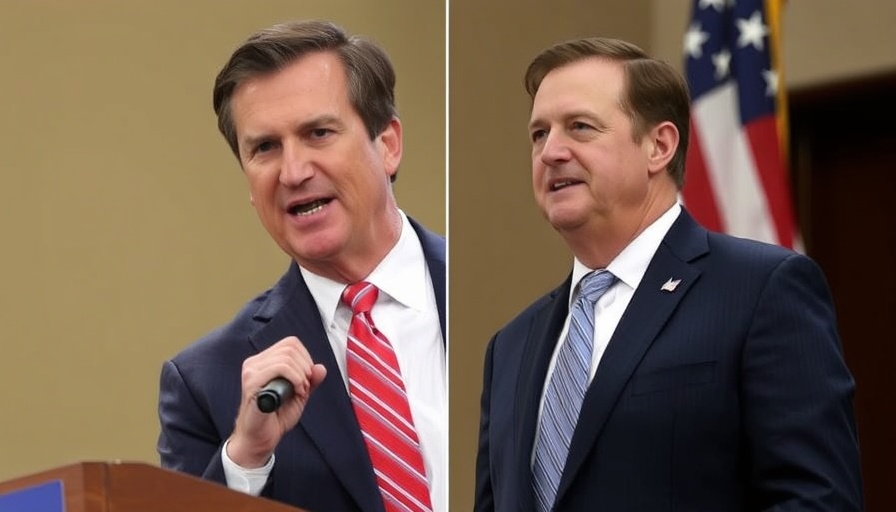
The Landscape of Georgia Politics as Brian Kemp Bows Out
In a surprising announcement that reverberated through Georgia's political landscape, Governor Brian Kemp declared he will not run for U.S. Senator Jon Ossoff's seat in the upcoming 2026 election. This decision leaves significant implications for both the Republican and Democratic parties, especially as Ossoff prepares for a re-election campaign that could prove challenging in a state that has seen shifting political allegiances.
The Uncertain Future for Jon Ossoff
Ossoff, who made waves with his initial election to the Senate, faces an uphill battle in a state where Republican influence is growing. As noted by political science expert Dr. Andra Gillespie, “Democrats often find advantages in non-presidential years,” suggesting 2026 could theoretically lend itself to Democratic victories. Nevertheless, that advantage may not stretch as far for Ossoff given the current political dynamics.
The Power of Brian Kemp’s Popularity
Kemp’s withdrawal from the race removes a potent challenger from Ossoff’s path. His approval ratings, reported at 60 percent among Georgia voters—significant even among Democrats—could have bolstered the Republican ticket considerably. This situation underscores Kemp’s role not only as a governor but as a key player in shaping the Republican narrative and strategy leading into the 2026 elections.
Implications for Georgia’s Republican Landscape
Kemp, known for his ability to connect with voters across party lines, will now channel his efforts into supporting other Republican candidates. With a rich war chest at his disposal, his influence could tip the scales in critical races across the nation, as he strengthens his ties within the party in anticipation of a potential presidential run in 2028. His position as chair of the Republican Governors’ Association means he is well-positioned to be a vocal advocate for GOP candidates, thus shaping the political discourse.
The Shift in Voter Demographics and Its Impact
While Ossoff may breathe a sigh of relief with Kemp opting out, the reality of Georgia’s voter demographics looms large. With Republicans outnumbering Democrats, Ossoff will still face immense pressure. The Republican Party’s robust performance in recent elections has left many uncertain about the Democrats' ability to maintain a competitive edge. As Dr. Gillespie notes, Kemp's standing as a popular figure only amplifies these challenges as weary voters question whether the Democratic Party can unify sufficiently to mount a strong opposition.
Future Challenges for Both Parties
The absence of Kemp may have altered the immediate political landscape, but it does not erase the fundamental challenges each party faces. For Ossoff, the task of galvanizing voters among an increasingly diverse electorate remains critical, especially as motivations shift and economic anxieties rise. Meanwhile, the Republican Party must capitalize on its current momentum to ensure voter turnout and engagement in the years leading to the next elections.
The Road Ahead for Georgia Politics
As we look ahead to the 2026 Senate race, Georgia will likely be a focal point for national political strategies. Candidates from both sides will need to navigate complex voter sentiments and regional issues effectively. Ossoff’s bid for re-election coupled with other statewide races could lead to a vibrant electoral season in which the electorate's will decisively shape political outcomes in the Peach State.
The decision by Brian Kemp may not only transform the Senate contest but also serves as a reminder of the volatile nature of political ambitions and the shifting tides of voter loyalty. As both parties prepare for the road ahead, one thing remains clear: Georgia’s political arena is far from predictable.
 Add Row
Add Row  Add
Add 




 Add Row
Add Row  Add
Add 

Write A Comment